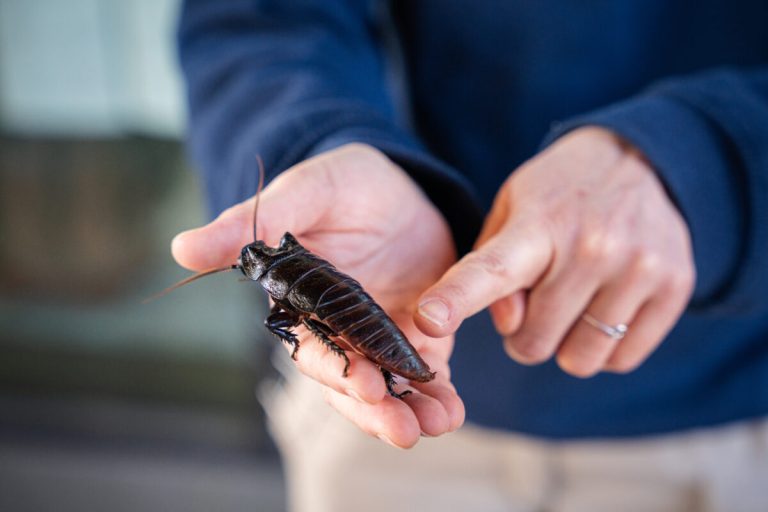Meet the new ancient shark species found in southern Alabama
Reading time: 4 minutes

Excuse me while I geek out about Alabama geology but there was a major discovery in southern Alabama. Scientists found a new species of fossil shark! You’ll be able to check out this new discovery for yourself at McWane Science Center in early 2020.
A team of scientists recently discovered a new species of fossil shark in southern Alabama. The discovery was led by Jun Ebersole, Director of Collections at the McWane Science Center.

The scientists were examining the diversity of fossil sharks and bony fish in Alabama during the Eocene Epoch (a fancy way of saying 40 million years ago). Imagine going to look at a few fossils and discovering a whole new species!

The new shark species was officially named “Carcharhinus macinae” but we’ll just call it by its nickname, “Mancin Shark”. The name pays homage to Lois Mancin, who spent many years volunteering and sharing her passion for education at McWane Science Center. Although a new species, it’s related to at least a dozen shark species found in the Gulf of Mexico today.
“During our study we documented 115 unique species of sharks, rays and bony fishes. Although the Mancin shark was the only new species we discovered, 12 others represent species that, until now, were not known to occur in North America”
David Cicimurri, Curator of Natural History, South Carolina State Museum in Columbia, SC
How did a shark turn up in southern Alabama? 🤔

I pulled up my old Environmental Earth Sciences class notes for this article. I almost forgot just how amazing Alabama geology is and the shark’s new discovery was a quick reminder.
Alabama is one of the most biodiverse places on EARTH! We have more layers of rock than any other state with most of it being sedimentary. These factors make Alabama the number one state for fossils in the U.S.
Once upon a time, most of the state was actually underwater! Yes, you read that right. Alabama was partially covered by the sea. Marine life thrived here due to the warm climate, which explains why you may find shark teeth or fish fossils right here in Birmingham.
Driving through millions of years of history 🚙

Next time you’re on Red Mountain Expressway, take a look at your surroundings. It seems like just another congested section of the interstate, right? Well, believe it or not, you’re driving through millions of years of history.
Although the Red Mountain Expressway was originally created to connect Downtown Birmingham to the other side of the mountain, it became one of the most impressive geological finds in the state. Gorgeous multicolored bands of rock were exposed when developers blasted the interstate through the mountain.

Each horizontal ridge represents a different geologic time in history. The Red Mountain Expressway‘s exposed rock showcases 190 million years of history, more than any other road cut in America! You can find fossils of ancient marine life within the layered rock.
The National Park Service named the Red Mountain Cut a National Landmark in 1987. So next time you’re stuck in that pesky 280 traffic, remember you’re literally traveling through time.
Even as we approach the new year, the discovery of the Mancin Shark proves that we still have so much to learn. There’s so much history right below our feet that we may not even be aware of. Let’s see what discoveries 2020 brings us!



